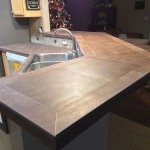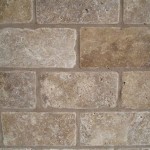The Cost of Tile Flooring Per Square Foot: A Comprehensive Guide
Tile flooring remains a popular choice for homeowners due to its durability, versatility, and aesthetic appeal. However, the cost of tile flooring can vary significantly depending on several factors, including the type of tile, installation costs, and the size of the area being covered. Understanding the cost of tile flooring per square foot is crucial for budgeting and planning your home renovation project. This article provides a comprehensive overview of the factors that influence the cost of tile flooring per square foot, helping you make informed decisions for your home.
Factors Influencing the Cost of Tile Flooring Per Square Foot
The cost of tile flooring per square foot is influenced by a range of factors, each contributing to the overall expense. Understanding these factors will help you assess the costs involved in your project and make informed decisions regarding your tile selection.
1. Tile Type
The type of tile you choose is a significant factor in determining the cost per square foot. Porcelain and ceramic tiles are generally more affordable options, while natural stone tiles, such as marble, granite, and slate, tend to be more expensive. Here's a breakdown of common tile types and their estimated costs per square foot:
- Ceramic Tile: $1-$5 per square foot
- Porcelain Tile: $2-$10 per square foot
- Natural Stone Tile (Marble, Granite, Slate): $5-$20+ per square foot
- Glass Tile: $5-$20+ per square foot
- Mosaic Tile: $10-$30+ per square foot
It's essential to consider the durability, maintenance requirements, and aesthetic preferences associated with each tile type when making your decision. For example, porcelain tile is known for its durability and water resistance, making it ideal for high-traffic areas like kitchens and bathrooms. Natural stone tiles offer a unique and luxurious aesthetic, while glass and mosaic tiles add a touch of artistry and elegance to any space.
2. Tile Size and Shape
The size and shape of the tile also play a role in the overall cost. Larger tiles generally require less labor for installation, leading to a lower cost per square foot. Conversely, smaller tiles, especially mosaics, require more time and effort to install, increasing the cost per square foot. Additionally, custom-shaped tiles can also be more expensive due to the specialized labor involved in their installation.
3. Installation Costs
Installation costs are a significant factor in the overall price of tile flooring. These costs can vary depending on the complexity of the installation, the size of the area being covered, and the experience level of the installer. Factors that can increase installation costs include:
- Complex Layouts: Intricate patterns, designs, or multiple tile types will require more time and expertise, increasing installation costs.
- Difficult Subfloors: Uneven, cracked, or damaged subfloors may need additional preparation work, affecting installation costs.
- Custom Work: Any custom work, such as tile cutting or intricate designs, can increase installation costs.
It's crucial to obtain multiple quotes from qualified and experienced tile installers to compare prices and ensure you're getting a fair price for the installation.
Additional Costs to Consider
Besides the cost of the tile and installation, you should also factor in additional costs like:
1. Materials:
- Mortar: For adhering the tiles to the subfloor.
- Grout: For filling the spaces between tiles.
- Thinset: For bonding the tiles to the subfloor.
- Backerboard: For moisture protection in bathroom and other wet areas.
- Transition Strips: For transitioning between different flooring types.
2. Permits:
Depending on your local building codes, you may need permits for your tile installation project.
3. Removal of Existing Flooring:
If you're replacing existing flooring, you'll need to factor in the cost of removing it.
Budgeting Tips for Tile Flooring
To effectively budget for your tile flooring project, consider these tips:
1. Define Your Needs and Budget:
Before you begin shopping for tiles, determine your budget and the desired look and functionality for your space. This will guide your tile selection and help you stay within your budget.
2. Shop Around for Prices:
Obtain multiple quotes from tile suppliers and installers to compare prices and ensure you're getting the best value for your money.
3. Factor in Hidden Costs:
Remember to include additional costs like materials, permits, and removal of existing flooring in your budget.
4. Consider a Professional Installer:
Although DIY tile installation might seem tempting, it's often more efficient and cost-effective to hire a professional installer to ensure proper installation and minimize potential problems in the long run.
By carefully considering these factors and implementing these budgeting tips, you can ensure you're making informed decisions about your tile flooring project and achieving your desired outcome within your budget.

Tile Flooring Installation Cost Floor S Fixr

Ceramic Tile Flooring Installation Cost Fixr

Ceramic Tile Flooring Installation Cost Fixr

Ceramic Tile Flooring Installation Cost Fixr

Tile Flooring Installation Cost Floor S Fixr

Tile Flooring Installation Cost Floor S Fixr

Luxury Vinyl Tile Cost To Install Lvt Flooring Fixr

What Is The Average Cost To Install Tile Floors Rubi Blog Usa

How Much Does Tile Installation Cost 2025 Guide

How Much Does Tile Installation Cost 2025 Guide
Related Posts








